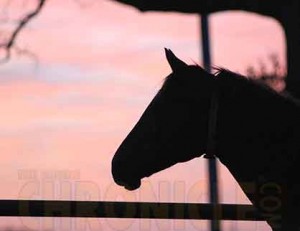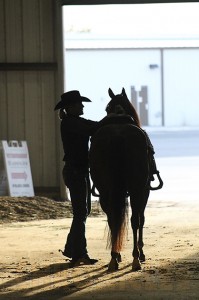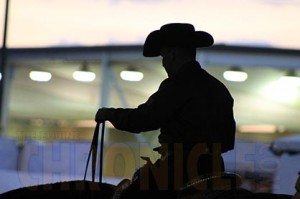Getting the Most From Your Equine Mortality Insurance- Part 1
By: Evan R. Kaplow of Kaplow Insurance Agency, LLC
No one wants to suffer from an unexpected bill – especially one that results from damages caused by your horse. When you consider equine mortality coverage, major medical and loss of use endorsements, also be sure to discuss personal horse owner liability coverage.
Personal Horse Owner Liability Coverage
A policy that I believe is very important for horse owners to have is a personal horse owner liability policy. This policy is attached to you as the horse owner, and it protects you in the event that your horse injures someone or damages property – whether at home, at a show, or at a trainer’s barn.
Things can happen in an instant. A horse can get loose and run across the show grounds, damaging property, or get away from your farm and into a roadway, causing an accident. Personal horse owner liability coverage helps protect you from these types of losses.
Since equine mortality insurance helps protect your investment – your asset – you may want to consider an endorsement for major medical expenses. Below, I discuss how emergency medical endorsement and major medical endorsements would work with your mortality insurance policy.
Emergency Medical Endorsement
As part of your equine mortality policy, insurance companies often provide an endorsement for emergency colic surgery. This provision is usually provided at no cost to you, and can include $3,000 to up to $5,000 of coverage for the surgery – even if you do not have a major medical endorsement with your policy.
It’s important to keep in mind that this coverage will probably not cover the entire cost of emergency surgery, and it will not cover tests leading up to or all of the post-operative care following surgery. These expenses can really add up over the course of treatment.
Major Medical Endorsement
Because we know that costs of equine medical procedures add up, I recommend adding a major medical endorsement to the mortality policy. Medical coverage helps with those pre- and post-operative costs as well as the surgery itself.
Major medical covers any treatment other than routine care and can include care for lameness, medications, ultrasound, bone scans, soft tissue treatments, and services such as shock wave therapy. Certain treatments are not covered. Ask your agent what is and what is not covered.
If you’re considering adding a major medical endorsement to your equine mortality policy, you’ll want to be comfortable with the costs you’ll be paying. Most insurance companies have gone to a co-pay, where the insured horse owner is responsible for paying a percentage of the cost associated with treatment after a deductible has been satisfied. Some policies have a deductible only and no co-pay. This is something you’ll want to discuss thoroughly with your agent.
All companies have different wordings, exclusions, and paybacks. Your agent should have options for you.
You are already considering equine mortality insurance to help you protect your investment – your asset – in the event of a loss. But what happens if your horse becomes incapacitated and unable to show, breed, or be sold? The loss of use endorsement can protect your investment under this circumstance.
Loss Of Use Endorsement
Another endorsement that many horse owners may want to consider is loss of use coverage. It isn’t for everyone, but it can be another way for you to protect your asset. If your horse becomes incapacitated due to a debilitating injury or disease that doesn’t warrant euthanasia, and you can no longer show, breed, or sell your horse, loss of use may be the only way to regain some of your financial investment.
Horse owners must pay for and provide x-rays annually that are used by the insurance company to determine eligibility for coverage. Some horse owners are deterred from choosing loss of use coverage due to the expense of x-rays and the cost of additional coverage, however the coverage can be very useful.
Stay tuned to EquineChronicle.com for upcoming articles from Evan Kaplow that will include explanations of Fall of Hammer Coverage and Stallion Accident Sickness Disease Coverage as well as Agreed vs Fair Market Value and How to Determine Insured Value.













